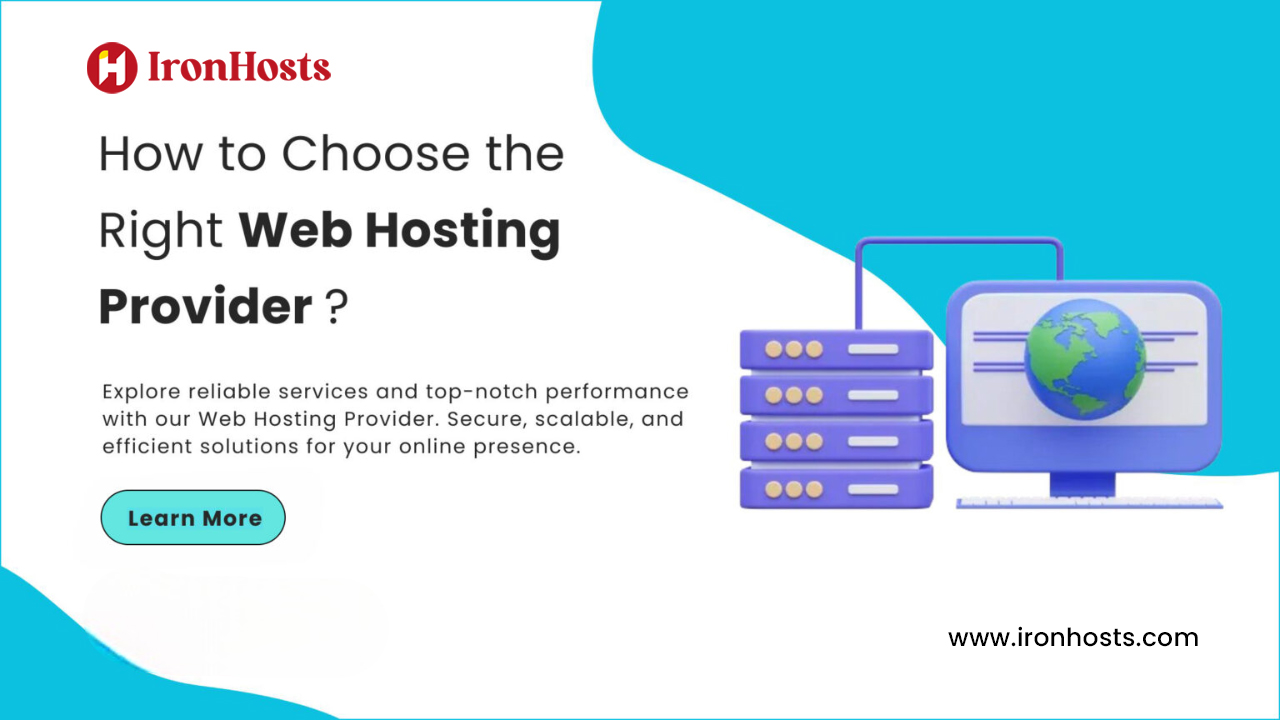A web hosting provider offers the necessary services and infrastructure to make websites accessible on the internet. When adjudging on the type of web hosting that fits your needs, you’ll face your initial choice. The usual options encompass shared hosting, VPS hosting, dedicated hosting, and cloud hosting. Shared hosting, for instance, entails sharing server resources with other websites, rendering it a budget-friendly option. Elect a provider that ensures your website operates seamlessly.
Understanding the web hosting provider:
Before getting lost in the sea of web hosting provider, it’s crucial to assess your website’s requirements. Take into account elements like your website’s category, anticipated traffic levels, required functionalities, and financial limitations. This understanding will streamline your choices and steer you toward picking the ideal web hosting provider.
Choosing the Types of Web Hosting Provider
When adjudging on the type of web hosting that fits your needs, you’ll face your initial choice. The usual options encompass shared hosting, VPS hosting, dedicated hosting, and cloud hosting. Shared hosting, for instance, entails sharing server resources with other websites, rendering it a budget-friendly option.
Consistent and uptime
Consistency and uptime are crucial factors to consider when selecting a web hosting provider. You want a provider that guarantees excellent uptime, ensuring that your website remains accessible to visitors at all times.
Speed and performance
Website speed is another critical aspect of web hosting services. A fast-loading website not only enhances the user experience but also improves search engine rankings. Opt for a web hosting provider that offers robust infrastructure, including SSD storage, caching technologies, and content delivery networks (CDNs), to ensure optimal speed and performance for your website.
Customer Support
Security Features
Security should be a top priority when choosing a web hosting provider. Look for providers that implement robust security measures such as SSL certificates, firewalls, malware scanning, and regular backups. Additionally, inquire about their data center security protocols and whether they offer features like DDoS protection to safeguard your website against cyber threats.
Scalability
As your website grows, you may need to upgrade your hosting plan to accommodate increased traffic and resource demands. Choose the best hosting provider that offers scalable website service, allowing you to easily upgrade or downgrade your plan as needed without experiencing downtime or other disruptions to your website.
Price and value
Compare pricing plans and consider factors such as included features, performance, reliability, and customer support.
Conclusion
Choosing the right web hosting provider is a critical decision that can significantly impact the success of your website. By considering factors such as reliability, speed, customer support, security features, scalability, and web hosting pricing, you can make an informed decision that aligns with your needs and budget. Remember to thoroughly research and compare different providers before committing, and don’t hesitate to reach out to their customer support teams with any questions or concerns. With the right web hosting provider by your side, you can ensure that your website operates smoothly, securely, and efficiently, helping you achieve your online goals.
1. What factors should I consider when choosing a web hosting provider?
When selecting a web hosting provider, consider factors such as uptime reliability, customer support, scalability, pricing, and the types of hosting plans offered (shared, VPS, dedicated, etc.).
2. How important is customer support in web hosting?
Customer support is crucial, as you may encounter issues that require immediate assistance. Look for providers that offer 24/7 support via multiple channels (live chat, phone, email).
3. What is uptime, and why does it matter?
Uptime refers to the percentage of time your website is online and accessible. A high uptime percentage (ideally 99.9% or above) is essential for ensuring your site remains operational and accessible to visitors.
4. Should I choose shared hosting or VPS hosting?
Shared hosting is cost-effective and suitable for small websites or startups, while VPS hosting offers more resources and control, making it better for growing websites with higher traffic demands.
5. How can I assess the performance of a hosting provider?
Research the provider’s reputation by checking customer reviews, performance benchmarks, and response times. You can also look for performance guarantees or free trials.
6. Are there any hidden costs associated with web hosting?
Some providers may have hidden fees for setup, domain registration, backups, or renewal. Always review the terms of service and ask about any additional charges before signing up.
7. What is the significance of server location?
The server location can affect your website’s loading speed and SEO. Choose a provider with servers close to your target audience to enhance performance.
8. How does scalability factor into my choice?
As your website grows, you may need more resources. Choose a provider that offers scalable hosting plans, allowing you to upgrade without significant hassle.
9. What security features should I look for?
Look for features such as SSL certificates, DDoS protection, regular backups, and malware scanning to ensure your website is secure against threats.
10. Can I migrate my website to a new hosting provider easily?
Check if the provider offers free migration services or detailed guides for migrating your website. Ease of migration can be important if you need to switch providers in the future.

